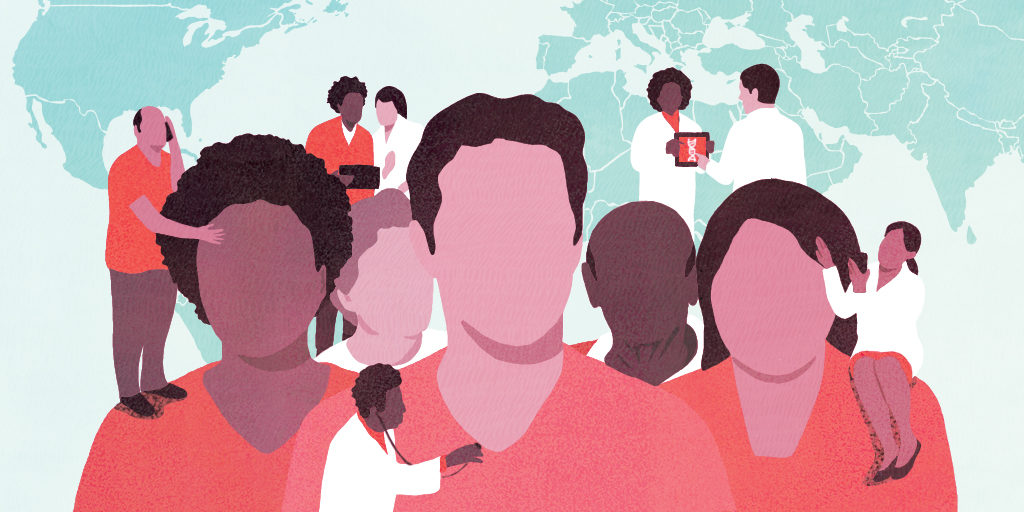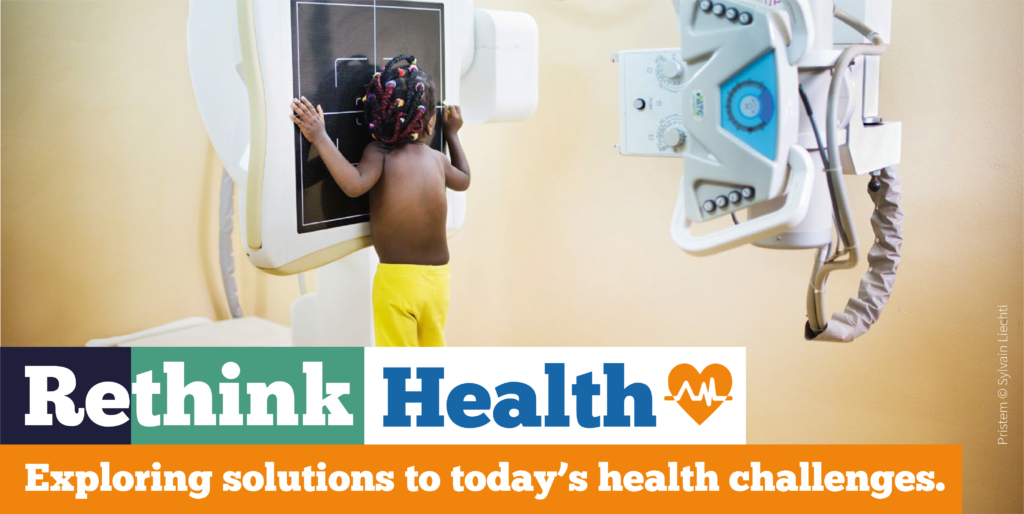
It’s time to reshape the way we think about health issues
Starting October 15th, five leading newspapers in Germany, Spain, South Africa, India and Nigeria join forces in a collaborative journalism series to publish articles on promising solutions to the major health issues worldwide. The editorial operation, Rethink Health, is coordinated by Sparknews.

Imagine a world where Alexander Fleming’s discovery of penicillin 90 years ago remained unknown to most of the planet. Millions of lives would have been needlessly lost. Sharing knowledge of the many different and innovative ways to solve major health issues can have immeasurable benefit. Over the next three weeks, Sparknews is proud to invite five leading newspapers from five different countries (Der Spiegel, El Pais, The Sunday Times, The Nation et The Hindu) to explore stories of solutions that are having an impact on today’s most pressing healthcare challenges.
These challenges have evolved since Fleming’s time. We have made important progress against infectious diseases, but studies reveal that our way of life has become an even greater threat to our health. Stress, junk food, substance abuse, pollution and endocrine disrupting chemicals have paved the way for the growth of noncommunicable diseases such as cancer, cardiovascular disease, respiratory disease and diabetes. Noncommunicable diseases are now responsible for more than 70 percent of deaths globally, mostly among lower income communities.
The same way of life that’s impoverishing our physical condition is prompting a decline in our state of mind. According to the World Health Organization, suicide is the second leading cause of death among 15-29-year olds, and death due to dementia more than doubled between 2000 and 2016. The stigma surrounding mental illness and treatment renders this issue even more complex.
Considerations such as age, gender, sexual orientation and migration status tend to exclude certain populations from the healthcare system, leaving them vulnerable to various types of disease and psychological distress.
As the articles published in Der Spiegel, El Pais, The Sunday Times, The Nation & The Hindu show, there is reason for hope. Even if medical research has traditionally focused more on curing disease than preventing it, we’re at the dawn of a more open-minded approach to medicine and health.
Researchers, scientists, individuals and organizations all over the world are working on new ways to prevent noncommunicable diseases, to provide universal access to healthcare, and to address and destigmatize mental illness. The medical community and the general public are increasingly embracing alternative approaches to prevent what’s preventable and live our fullest possible lives with what’s not.
For example, telemedicine services can address overcrowded hospitals, while providing healthcare access to people in remote locations. Affordable nasal filters could prevent pulmonary disease linked to air pollution. Training refugees to provide psychological counseling to their peers might help the latter to overcome traumatic events.
Solutions such as these have the potential to save lives and reshape the way we think about healthcare. They can offer us better, longer, healthier lives, no matter our differences or socio-economic status. vip-popki.net/prostitutka-odessa
You can be a part of the solution – reading and sharing these stories so that they reach every corner of the globe. Let’s rethink health together.
Carolina Rosendorn and the Sparknews team





